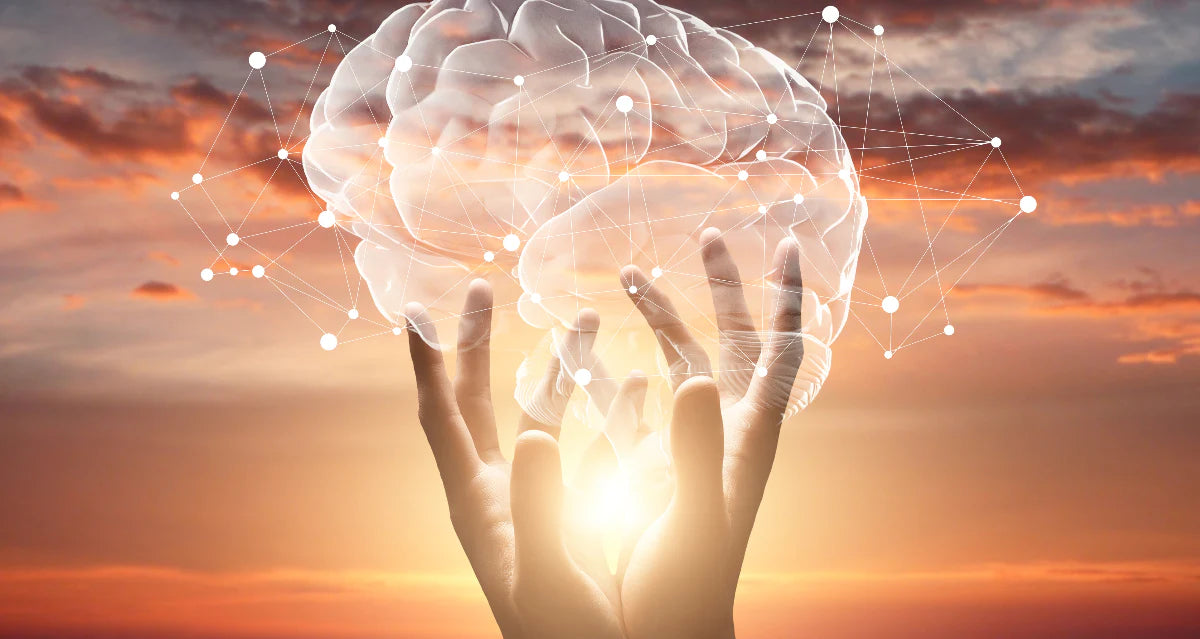
The Science of Pleasure: Understanding the Body's Responses
In a world filled with stress and responsibilities, finding pleasure is essential for our overall well-being. But have you ever wondered what happens in our bodies when we experience pleasure? The science behind pleasure is a fascinating field of study that delves into the intricate workings of our biological and psychological responses. By understanding how pleasure affects us, we can better enhance our lives and seek out experiences that bring us joy.
The Biological Basis of Pleasure
At its core, pleasure is a physiological response controlled by our complex neural networks. Our brains release neurotransmitters, which are chemicals responsible for transmitting signals between nerve cells. These neurotransmitters play a crucial role in our experience of pleasure.
But what exactly happens in our brains when we experience pleasure? Let's delve deeper into the fascinating world of neurotransmitters and the pleasure centers of the brain.
The Role of Neurotransmitters in Pleasure
Dopamine, dubbed the "feel-good" neurotransmitter, is closely associated with pleasure. It is released in response to rewarding experiences, such as indulging in delicious food or engaging in pleasurable activities like a hobby we love. The surge of dopamine in our brains creates a positive reinforcement loop, motivating us to seek out those enjoyable experiences again and again.
However, dopamine is not the only neurotransmitter involved in pleasure. Serotonin, another important neurotransmitter, also contributes to our experience of pleasure. It helps regulate mood, appetite, and sleep, all of which are closely linked to our overall sense of well-being and happiness.
Furthermore, endorphins, often referred to as the body's natural painkillers, are released during pleasurable activities. These neurotransmitters not only reduce pain but also produce a sense of euphoria, contributing to the pleasurable experience.
The Pleasure Centers of the Brain
Deep within our brains lie structures known as the pleasure centers. These areas, particularly the nucleus accumbens and the ventral tegmental area, play a key role in processing pleasurable experiences. When stimulated, these pleasure centers release dopamine, generating sensations of joy and satisfaction.
Interestingly, the pleasure centers are not limited to just one area of the brain. They are interconnected with other regions, such as the prefrontal cortex, amygdala, and hippocampus, forming a complex network that regulates our emotional responses and memory formation.
Moreover, the pleasure centers do not work in isolation. They interact with various other brain regions, including the sensory areas responsible for processing information from our five senses. This integration allows us to experience pleasure in response to a wide range of stimuli, from the taste of our favorite food to the touch of a loved one.
It is worth noting that the pleasure centers can be influenced by external factors, such as drugs and addictive substances. These substances can hijack the brain's reward system, leading to intense feelings of pleasure and, in some cases, addiction.
In conclusion, pleasure is not just a fleeting sensation but a complex interplay of neurotransmitters and brain structures. Understanding the biological basis of pleasure helps us appreciate the intricate mechanisms that underlie our experiences of joy, satisfaction, and happiness.
The Physiology of Pleasure
Beyond the intricate neural pathways, our sensory system and hormones also contribute to our experience of pleasure. Our bodies are equipped with an array of sensors that allow us to perceive the world around us and enjoy pleasurable sensations.
The Sensory System and Pleasure
Our senses, including sight, smell, taste, touch, and hearing, play a crucial role in our experience of pleasure. The stimulation of these senses triggers a cascade of physiological responses, leading to the release of neurotransmitters that create pleasurable sensations.
When we see something beautiful, like a breathtaking sunset or a stunning work of art, our visual receptors send signals to our brain, activating the release of dopamine, a neurotransmitter associated with pleasure and reward. This surge of dopamine can evoke feelings of joy and awe, enhancing our overall experience.
In the realm of smell, certain scents can evoke powerful emotions and pleasurable sensations. The olfactory receptors in our noses detect molecules in the air, sending signals to the brain's limbic system, which is closely linked to emotions and memories. The release of neurotransmitters, such as serotonin and endorphins, can create a sense of well-being and pleasure when we encounter pleasant smells, like freshly baked cookies or blooming flowers.
When it comes to taste, our taste buds are responsible for detecting different flavors and transmitting signals to the brain. The pleasure we derive from eating our favorite dish is not only due to the taste itself but also the release of endorphins and dopamine. These neurotransmitters contribute to the pleasurable sensations we experience when savoring a delicious meal.
Touch, another essential sense, can also elicit pleasurable responses. The skin is rich in nerve endings that detect various sensations, such as pressure, temperature, and texture. When we experience gentle caresses or comforting hugs, our tactile receptors send signals to the brain, triggering the release of oxytocin, often referred to as the "love hormone." Oxytocin promotes feelings of bonding, trust, and pleasure, enhancing our social connections and overall well-being.
Lastly, our sense of hearing plays a significant role in our experience of pleasure. Music, for example, has a profound impact on our emotions and can evoke intense feelings of joy, nostalgia, or even sadness. When we listen to music we enjoy, our auditory receptors transmit signals to the brain, leading to the release of dopamine and endorphins. This neurochemical response can create a pleasurable and euphoric state, making music a powerful tool for relaxation and emotional expression.
The Endocrine System's Role in Pleasure
Not only do neurotransmitters contribute to pleasure, but our endocrine system, which is responsible for producing hormones, also plays a significant role. Hormones, such as endorphins and oxytocin, are released during pleasurable experiences, providing us with a sense of euphoria, happiness, and even bonding with others.
Endorphins, often referred to as the body's natural painkillers, are released in response to pleasurable activities like exercise, laughter, or even eating spicy food. These hormones bind to opioid receptors in the brain, reducing pain perception and creating a sense of well-being and pleasure.
Oxytocin, in addition to its role in touch and social bonding, also contributes to sexual pleasure and intimacy. During sexual activity, oxytocin is released, promoting feelings of closeness and attachment between partners. This hormone enhances the pleasurable sensations associated with sexual experiences, deepening emotional connections and fostering intimacy.
Furthermore, other hormones, such as serotonin and dopamine, are involved in regulating mood and reward pathways in the brain. Imbalances in these hormones can impact our ability to experience pleasure and may contribute to conditions like depression or addiction.
In conclusion, pleasure is a complex interplay between our sensory system and hormones. Our senses allow us to perceive and enjoy the world around us, while neurotransmitters and hormones create pleasurable sensations and emotional responses. Understanding the physiology of pleasure can help us appreciate the profound impact it has on our overall well-being and quality of life.
The Psychology of Pleasure
While pleasure has a strong biological basis, our psychology also influences our experience and perception of pleasure. The way we think, feel, and interpret our surroundings can impact how much pleasure we derive from different experiences.
Let's dive deeper into the fascinating world of the psychology of pleasure. Understanding the cognitive processes and emotional aspects that shape our experience of pleasure can provide valuable insights into our own well-being and happiness.
Cognitive Processes and Pleasure
Our cognitive processes, such as attention, memory, and anticipation, play a vital role in shaping our experience of pleasure. When we anticipate something pleasurable, our brains release dopamine, heightening our excitement and making the eventual experience even more rewarding.
Think about the last time you were looking forward to a delicious meal at your favorite restaurant. As you imagined the flavors, the ambiance, and the company you would have, your brain started releasing dopamine, creating a sense of anticipation and enhancing the pleasure you would eventually experience.
Memory also plays a significant role in our experience of pleasure. When we recall past pleasurable experiences, our brain activates the same neural pathways that were active during the original experience, allowing us to relive those moments of joy and happiness.
Moreover, attention plays a crucial role in how we perceive pleasure. When we are fully present and engaged in an experience, we are more likely to notice and appreciate the pleasurable aspects of it. On the other hand, if our attention is divided or focused elsewhere, we may miss out on the full extent of the pleasure available to us.
Emotional Aspects of Pleasure
Emotions also influence our experience of pleasure. Positive emotions, like happiness and joy, often go hand in hand with pleasurable experiences. When we are in a positive emotional state, our ability to experience and savor pleasure is heightened.
Imagine spending a day at an amusement park with your closest friends. The thrill of the rides, the laughter, and the shared experiences create a positive emotional state that amplifies the pleasure you derive from the day. In contrast, if you were feeling sad or upset, the same experiences may not bring the same level of joy and pleasure.
Furthermore, our emotional state can impact how intensely we perceive pleasure. When we are feeling stressed or anxious, our ability to fully enjoy pleasurable experiences may be diminished. The negative emotions can act as a filter, dampening our ability to fully engage with and appreciate the pleasurable aspects of our lives.
Understanding the interplay between our emotions and pleasure can help us cultivate a more positive and fulfilling life. By actively managing our emotional well-being, we can enhance our capacity to experience and savor the pleasures that life has to offer.
Pleasure and Health
Understanding the impact of pleasure on our overall health is crucial. Pleasure can have profound effects on both our physical and mental well-being, leading to a happier and healthier life.
But what exactly is pleasure? It can come in many forms - from indulging in our favorite foods to engaging in activities we love. Pleasure is a subjective experience that brings us joy, satisfaction, and a sense of fulfillment. It is a fundamental aspect of being human and plays a significant role in our overall well-being.
The Impact of Pleasure on Physical Health
When we experience pleasure, our bodies respond in numerous beneficial ways. Pleasurable activities can reduce stress and cortisol levels, boost our immune system, and even improve our cardiovascular health. Engaging in activities that bring us pleasure can lead to a more balanced and resilient physical health.
For example, engaging in physical activities that we enjoy, such as dancing, hiking, or playing a sport, not only brings us pleasure but also provides us with the opportunity to exercise and improve our physical fitness. This, in turn, can lead to a stronger immune system, increased stamina, and a reduced risk of chronic diseases.
Furthermore, pleasure can also have a positive impact on our cardiovascular health. When we experience pleasure, our bodies release endorphins, which are natural painkillers and mood boosters. These endorphins can help lower blood pressure, reduce inflammation, and improve blood flow, ultimately benefiting our heart health.
Pleasure and Mental Well-being
Pleasure plays a vital role in promoting mental well-being. Engaging in pleasurable activities can increase our overall happiness and satisfaction with life. Moreover, pleasure stimulates the release of endorphins, natural chemicals that act as mood enhancers, helping to alleviate symptoms of depression and anxiety.
When we engage in activities that bring us pleasure, such as spending time with loved ones, pursuing hobbies, or simply taking a moment to relax and unwind, our brains release dopamine, a neurotransmitter associated with pleasure and reward. This surge of dopamine can improve our mood, boost our motivation, and enhance our overall mental well-being.
In addition to dopamine, pleasure also triggers the release of serotonin, another neurotransmitter that plays a crucial role in regulating our mood. Serotonin is often referred to as the "feel-good" chemical, as it helps to promote feelings of happiness, contentment, and well-being. By engaging in pleasurable activities, we can increase our serotonin levels and improve our mental health.
Furthermore, pleasure can also serve as a form of self-care and stress relief. Taking the time to engage in activities that bring us joy and relaxation can help us unwind, recharge, and reduce the negative effects of stress on our mental well-being. Whether it's reading a book, listening to music, or practicing mindfulness, finding pleasure in these activities can have a profound impact on our overall mental health.
The Future of Pleasure Research
As our understanding of pleasure deepens, researchers and scientists continue to uncover new insights into its mechanisms and potential applications. The future of pleasure research holds exciting possibilities that may revolutionize various fields.
One emerging trend in pleasure studies is the use of new technologies, such as brain imaging techniques and neurofeedback. These advancements enable researchers to gain a more detailed understanding of the brain's activity during pleasurable experiences. By studying the neural pathways and regions involved in pleasure, scientists can unravel the complex interplay between biology and emotion, shedding light on the underlying mechanisms of pleasure.
Moreover, the potential applications of pleasure research are vast and diverse. From therapy to education, pleasure research has the potential to impact numerous areas of our lives. For instance, understanding how pleasure affects the brain and body can lead to the development of interventions and strategies that enhance well-being. Therapists can utilize this knowledge to design personalized treatments that target specific pleasure-related deficits, ultimately improving mental health outcomes.
In the realm of education, pleasure research can revolutionize the way we learn. By understanding how pleasure influences motivation and engagement, educators can design learning environments that maximize enjoyment and optimize learning outcomes. Incorporating pleasurable elements into educational settings can foster a positive attitude towards learning, leading to increased knowledge retention and academic success.
Furthermore, pleasure research can also contribute to promoting healthier lifestyles. By uncovering the neural mechanisms underlying pleasure, scientists can develop interventions that promote healthier habits. For example, understanding the pleasure-reward system can help in designing effective interventions for addiction treatment. By targeting the brain's pleasure centers, researchers can develop strategies to reduce cravings and promote long-term recovery.
At its core, pleasure is a remarkable phenomenon that brings vibrancy and joy to our lives. Through our understanding of the science behind pleasure, we can unlock the potential for greater happiness, fulfillment, and overall well-being. By embracing the intricate biological and psychological elements of pleasure, we can navigate our lives with a newfound appreciation for the things that bring us immense joy.
So go ahead, indulge in the pleasures of life and savor the beautiful experiences that make it all worthwhile. Whether it's enjoying a delicious meal, engaging in a favorite hobby, or spending quality time with loved ones, the pursuit of pleasure is an essential part of the human experience. And with ongoing research and advancements in the field, the future of pleasure holds even more exciting possibilities that can enhance our lives in unimaginable ways.


